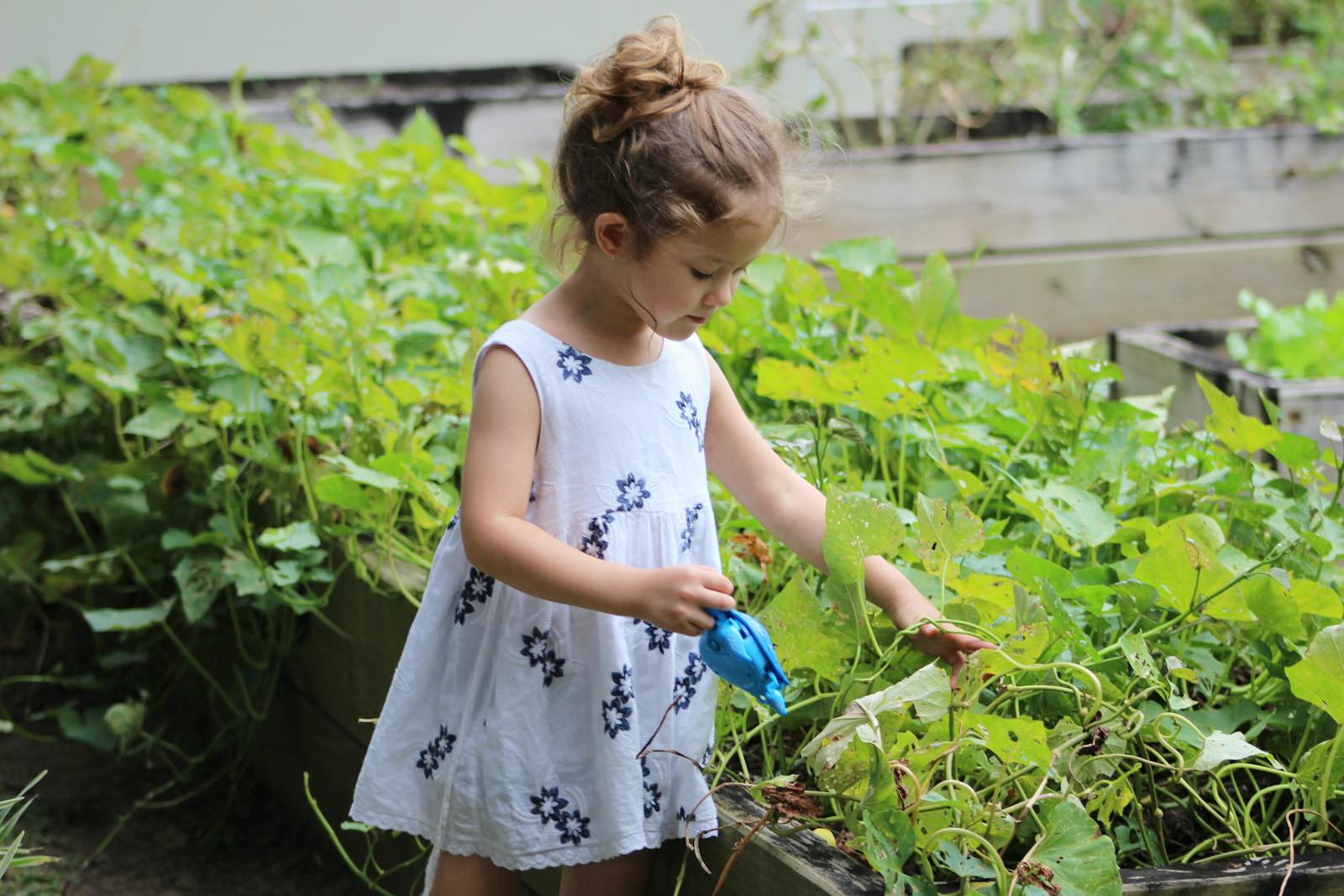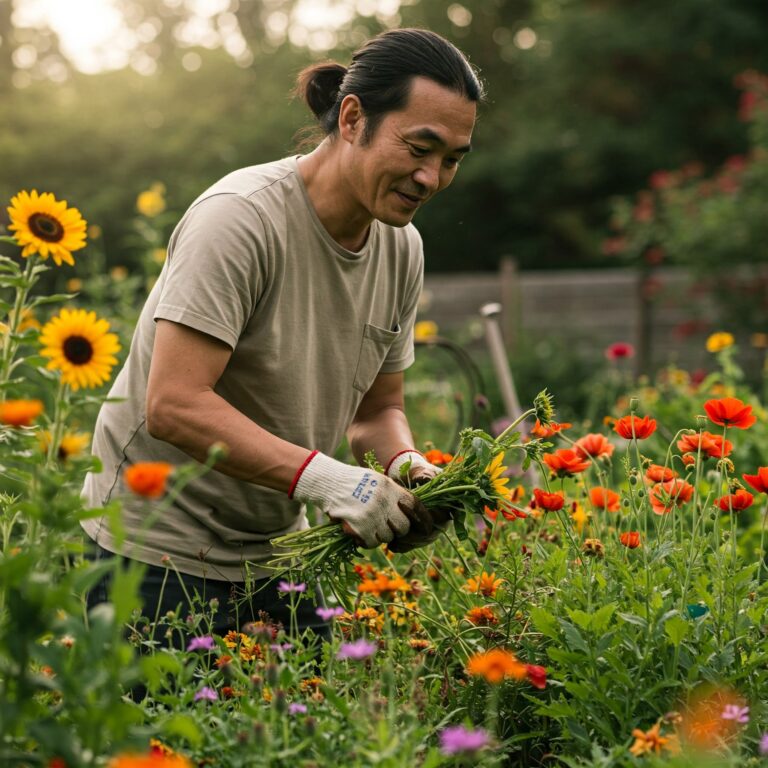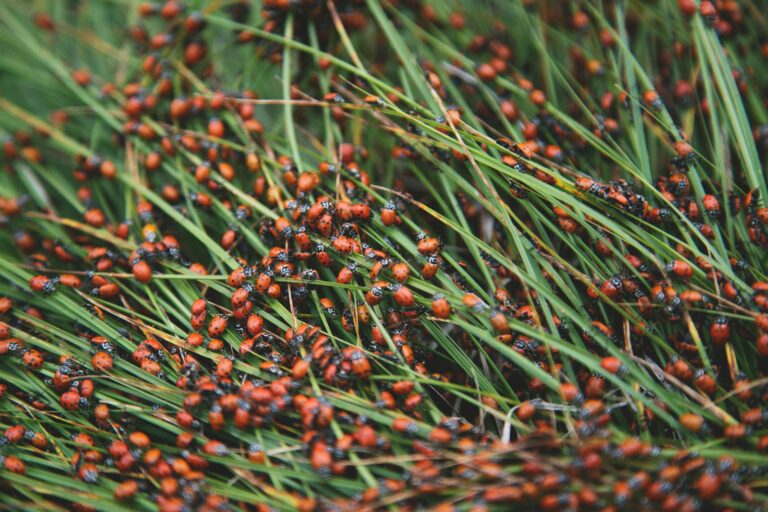Why Kids Should Fail in the Garden (and Why That’s Good)!
In our achievement-oriented culture, parents often go to extraordinary lengths to shield children from failure. We cushion falls, intervene in conflicts, and sometimes even complete school projects to ensure our children experience success. Yet in doing so, we may inadvertently deprive them of essential growth opportunities.
Perhaps nowhere is this more evident than in the garden a living laboratory where failure isn’t just possible but inevitable, instructive, and ultimately transformative. This article explores why allowing children to experience gardening failures might be one of the most valuable gifts we can offer them.
The Inevitability of Garden Failures
Even master gardeners with decades of experience face regular failures. Seeds refuse to germinate. Carefully tended seedlings wither overnight. Pests decimate promising crops. Weather events destroy months of work in minutes. The garden, by its very nature, refuses to be fully controlled—a humbling reality for gardeners of all ages.
“When my seven-year-old daughter’s sunflowers were flattened by a summer storm, she was devastated,” shares Monica Reynolds, a community garden coordinator from Ohio. “Her first instinct was to ask me to buy new plants from the garden center to replace them. Instead, we observed what happened next—how some stems partially recovered, how the damaged plants attracted different insects, and how nature responded to the disruption. The ‘failed’ sunflower patch taught her more than the perfect one ever could have.”
This sentiment echoes across conversations with educators, child development specialists, and gardening mentors. Garden failures provide children with experiences that can’t be simulated or taught through success alone.
Resilience Through Repeated Setbacks
Emotional Regulation in Real Time
Gardens provide children with authentic opportunities to practice emotional regulation when things don’t go as planned.
“I run a school garden program, and I’ve watched countless children experience their first major disappointment when something goes wrong with their plants,” explains Tomas Garcia, an elementary school science teacher. “One second-grader had carefully nurtured radish seedlings for weeks, only to discover one morning that slugs had devoured them overnight. He cycled through denial, anger, and sadness right before my eyes—but by the end of our garden session, he was already asking questions about slug prevention and making plans to replant.”
Unlike manufactured challenges, garden failures carry real emotional weight because children invest genuine care and effort in their plants. Learning to process these emotions in a safe environment builds emotional resilience that transfers to other areas of life.
The Practice of Starting Over
Few environments offer as many opportunities to practice starting over as the garden does. When a crop fails, gardeners must clear the debris, amend the soil, and begin again—a physical manifestation of resilience.
“My son Jake failed spectacularly with his first three attempts at growing carrots,” laughs Samantha Lee, who runs a family urban farm. “Too deep, too shallow, too crowded—he made every mistake possible. But each time, we pulled out the unsuccessful plants, discussed what might have gone wrong, and tried again with adjustments. By the fourth attempt, he succeeded—and those were the sweetest carrots I’ve ever tasted, not because they were objectively better, but because they represented persistence through multiple failures.”
This cycle of attempt, failure, adjustment, and reattempt builds what psychologists call “growth mindset”—the understanding that abilities can be developed through dedication and hard work. In an era when many children give up quickly when facing challenges, gardening nurtures the habit of persistent effort despite setbacks.
Scientific Thinking Through Garden Failures
Natural Experiments and Hypothesis Testing
When garden projects fail, they create perfect opportunities for scientific thinking.
“When children’s garden projects succeed, they rarely question why,” notes Dr. Eleanor Wang, a cognitive development researcher. “But failure immediately prompts investigation. I’ve observed children as young as four spontaneously forming hypotheses about why their plants died—too much water, not enough sun, hungry insects—and designing simple experiments to test their theories with their next planting. This is sophisticated scientific thinking emerging naturally from the experience of failure.”
This natural inquiry process mirrors the scientific method: observation, question formation, hypothesis development, experimentation, and conclusion drawing. Unlike contrived science experiments with predetermined outcomes, garden failures present authentic problems that demand real investigation.
Systems Thinking and Ecological Understanding
Failed garden projects often reveal interconnections that might otherwise remain invisible.
“Last spring, our youth gardening program had a catastrophic tomato failure,” recalls Jordan Williams, who leads an urban gardening initiative. “Rather than immediately replacing the plants, we investigated. The children discovered a cascade of related factors: unseasonably cool nights had stressed the plants, weakening their defenses against aphids, which then attracted ladybugs. This ‘failure’ revealed the complexity of garden ecosystems more effectively than any successful harvest could have.”
These experiences help children develop systems thinking—the ability to understand how various elements influence each other within a whole. In a world facing complex environmental challenges, this ecological understanding becomes increasingly valuable.
Practical Problem-Solving Through Creative Adaptation
Transforming “Failures” Into Different Successes
Experienced gardeners know that garden “failures” often simply require a pivot—a mental flexibility that serves children well beyond the garden gate.
“When my daughter’s pumpkin vines developed powdery mildew before the fruits matured, she was initially crushed,” remembers Michael Chen, a community garden coordinator. “But then she discovered she could harvest the immature pumpkins and use them like summer squash. What began as a failure became a culinary adventure. She learned that sometimes you need to redefine success rather than giving up entirely.”
This ability to adapt goals and find value in unexpected outcomes represents sophisticated problem-solving that translates to academic, social, and eventually professional settings.
Improvisation and Resource Management
Garden failures often demand creative use of limited resources—a valuable skill in any context.
“Our youth gardening program operates on a shoestring budget,” explains Desiree Washington, who works with underserved communities. “When our tomato supports collapsed mid-season, we couldn’t afford commercial replacements. The children scavenged discarded materials from around the neighborhood—old broomsticks, salvaged fencing, even repurposed plastic pipes—and designed better supports than what we had initially. The ‘failure’ of our original structure led to more resourceful thinking than success would have permitted.”
This improvisation in the face of constraints builds creative confidence and practical problem-solving abilities that extend far beyond the garden.
Social-Emotional Learning Through Shared Garden Challenges
Developing Empathy Through Plant Care
When plants fail to thrive despite a child’s best efforts, the experience can nurture empathy.
“I’ve watched children develop a kind of empathic awareness through failed gardening projects,” observes Dr. Sarah Michaels, a child psychologist who uses gardening in her practice. “They begin to understand that living things have needs that must be met, that these needs may not be immediately obvious, and that care doesn’t always guarantee the outcome you want. These are profound emotional insights that many adults still struggle with.”
This empathic understanding often transfers to human relationships, as children recognize that people, like plants, have different needs and respond differently to various types of care.
Community Through Shared Setbacks
Garden failures can bring children together in ways that individual successes rarely do.
“After a devastating hail storm destroyed most of our school garden, I witnessed something remarkable,” shares Lisa Okafor, an elementary school principal. “Children who normally competed for the biggest vegetables or prettiest flowers instead rallied together to rehabilitate the damaged plants. They shared tips, divided tasks, and celebrated small recoveries. The shared catastrophe created stronger community bonds than our harvest festivals ever had.”
This experience of collective response to setbacks prepares children for collaborative problem-solving and community resilience—increasingly important skills in a world facing complex challenges.
The Development of Patience and Long-Term Thinking
Natural Consequences and Delayed Gratification
Unlike many activities in children’s lives, gardening cannot be rushed, and failures cannot be immediately fixed—a powerful counter to the instant gratification culture.
“When ten-year-old Marcus forgot to water his bean plants for several days during a hot spell, they withered beyond recovery,” recounts his father, David Torres. “His first instinct was to ask for new seeds to start over immediately. Instead, I helped him understand that the growing season had specific windows, and he would need to wait until the following spring for another attempt. That long pause between mistake and opportunity gave him time to reflect and plan improvements—a rare experience of natural consequences in a world where most children’s mistakes are quickly remedied by adults.”
This experience of genuine consequences coupled with delayed opportunity for correction builds patience and fosters more careful attention to responsibilities.
Seasonal Thinking and Long-Term Planning
Garden failures encourage children to think beyond immediate timeframes.
“After a particularly disappointing growing season, our youth gardening club did something remarkable,” remembers Maria Gutierrez, who leads an after-school program. “Without prompting, the children began researching cover crops to improve the soil for next year. These same kids who typically focused only on immediate outcomes were suddenly discussing soil amendments and nitrogen fixation with an eye toward benefits they wouldn’t see for months. Their failure had expanded their temporal horizon in ways success never had.”
This extension of planning horizons represents cognitive development that serves children well in academic settings and beyond.
Embracing Imperfection and Finding Beauty in the Unexpected
Aesthetic Appreciation Beyond Conventional Standards
Garden failures often produce unexpected beauty that challenges conventional standards—an important counterbalance to perfectionism.
“My perfectionist daughter initially wanted to remove all the ‘imperfect’ strawberries from her garden,” shares Nadia Wilson, a holistic education advocate. “But after birds damaged many of her berries, we began examining the partially eaten fruits together. She discovered that each bird peck created unique patterns, revealing the deeper red flesh inside. She began photographing these ‘ruined’ berries, creating a beautiful collection of images celebrating their unexpected qualities. This experience visibly shifted her understanding of beauty beyond narrow perfection.”
This expanded aesthetic appreciation helps children resist harmful perfectionist tendencies that contribute to anxiety and depression in achievement-oriented environments.
Finding Joy in Process Rather Than Outcome
When garden projects fail to produce expected outcomes, children can discover value in the process itself.
“Owen spent months nurturing a giant pumpkin for the county fair, only to have it rot just days before the competition,” recalls his grandmother, Eleanor Schmidt. “Initially devastated, he later reflected that the hours spent tending his pumpkin had been the happiest part of his summer. He realized that the joy had been in the daily care and observation, not just in the anticipated prize. That’s a profound life lesson many adults never learn.”
This appreciation for process over product helps children develop intrinsic motivation—finding satisfaction in the experience itself rather than depending solely on external rewards or recognition.
Creating Safe Spaces for Meaningful Failure
How Adults Can Support Productive Garden Failures
For garden failures to yield their full developmental benefits, adults must strike a delicate balance—allowing genuine failure while providing appropriate support.
“The key is differentiating between productive struggle and overwhelming frustration,” advises Dr. Jennifer Martinez, a developmental psychologist. “Children need enough support to prevent complete disengagement but enough autonomy to experience authentic challenges. In practice, this might mean offering information about what plants need rather than taking over care, or asking guiding questions about what might have gone wrong rather than providing immediate answers.”
This balanced approach creates what developmental psychologists call the “zone of proximal development”—where challenges push children just beyond their current abilities while remaining within reach with appropriate support.
Modeling Healthy Responses to Gardening Setbacks
Perhaps most importantly, adults can model resilient responses to their own garden failures.
“Children watch how we respond to our own gardening disappointments,” notes Marcus Jefferson, who runs intergenerational gardening programs. “When my carefully tended heritage tomatoes developed blight, I made sure my reactions demonstrated the attitudes I hoped to nurture—curiosity about what went wrong, emotional regulation despite disappointment, and commitment to learning from the experience. Children internalize these response patterns when they see adults practicing them authentically.”
By demonstrating healthy responses to setbacks, adults provide children with behavioral templates they can adopt when facing their own challenges.
Conclusion: The Fertile Ground of Failure
In a culture increasingly intolerant of failure, the garden stands as a powerful counterpoint—a space where failure is not only permitted but recognized as essential to growth. The child who experiences garden failures develops resilience, scientific thinking, problem-solving abilities, empathy, community-mindedness, patience, and aesthetic flexibility that success alone cannot teach.
Perhaps most importantly, garden failures help children understand that setbacks are not terminal points but transitions—moments of redirection and opportunity. The failed garden bed becomes compost for next season’s attempt. The collapsed trellis inspires a sturdier design. The pest-damaged crop reveals ecological relationships previously unnoticed.
As parents, educators, and mentors, we can embrace the garden as a safe space for children to experience meaningful failure—knowing that in the rich soil of these disappointments, we cultivate not just stronger plants for the next growing season, but more resilient, thoughtful, and adaptable children ready to face an unpredictable world.
So the next time a child’s garden project fails, resist the urge to immediately fix, replace, or console away the disappointment. Instead, pull up a trowel alongside them and ask, “What do you think happened here? And what might we learn from it?” In that fertile moment of productive failure, the most important growth in the garden is happening not in the plants, but in the gardeners themselves.





